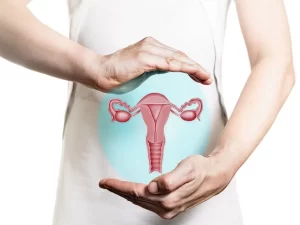
~A retrospective analysis of over 2, 58, 021 HbA1c samples tested for diagnostic and screening purposes in Delhi~
~Amongst the age group 31-45, over 37% samples tested prediabetic and over 39% are found to be diabetic suggesting an onset of diabetes in a healthy, young age group~
SRL Diagnostics prepared a Data Analytics Report on results of randomized samples received for Glycosylated/ Glycated Hemoglobin (HbA1c) from January 2017 till September 2021 in the city of Delhi. This report has been prepared on the basis of a retrospective data mining done on results of 2, 58, 021 tests done for HbA1c.
A report published in 2009 by an International Expert Committee on the role of HbA1c in the diagnosis of diabetes recommended that HbA1c can be used to diagnose diabetes and that the diagnosis can be made if the HbA1c level is ≥6.5%. Levels of HbA1c just below 6.5% may indicate the presence of intermediate hyperglycaemia. The precise lower cut-off point for this has yet to be defined, although the ADA (The American Diabetes Association) has suggested 5.7 – 6.4% as the high-risk range. While recognizing the continuum of risk that may be captured by the HbA1c assay, the International Expert Committee recommended that persons with an HbA1c level between 6.0 and 6.5% were at particularly high risk and might be considered for diabetes prevention interventions.
- For people without diabetes, the normal range for the HbA1c level is less than 5.7%.
- HbA1c levels between 5.7% and 6.4% mean one has a higher chance of getting diabetes (pre-diabetes).
- Levels of 6.5% or higher mean one has diabetes.
- Diabetics who keep their hemoglobin A1c levels close to 7% have a much better chance of delaying or preventing diabetes complications than people with levels 8% or higher.
Speaking on the data analytics report for Glycosylated/ Glycated Hemoglobin (HbA1c) conducted in Delhi, Dr. Anurag Bansal, Technical Director, SRL Diagnostics said “One in six people with Diabetes in the world is from India. As of 2019, India had the second-highest number of diabetes patients aged between 20 and 79 years with close to 77 million living with diabetes. In our analysis for the city of Delhi, we have found that amongst the 31 and 45 age group a staggering 37% samples were diagnosed with prediabetes and 39% are diabetic. Early diagnosis, extensive awareness and lifestyle interventions are required to keep our future generations healthier.”
- 42% of all samples tested reported positive for diabetes and 37% tested positive for prediabetes
- In 2020, due to the COVID – induced lockdown, a 31% drop was observed in samples tested for diabetes
- 46% of samples from males and 36% samples from females were found to be diabetic
- 36% of samples from males and 39% samples from females were diagnosed with prediabetes
Summary of findings from the study are as below:
- Out of the 2,58,021 samples tested in Delhi during the data analysis period, 42% tested positive for diabetes and over 37% were diagnosed with Prediabetes
| City | Normal | Prediabetes | Diabetes |
| Delhi | 21% | 37% | 42% |
- Delhi witnessed a 29% increase in number of samples tested for diabetes between 2017 and 2019. However during the pandemic the number of samples tested dropped by 31% in 2020.
- In Delhi, 36% samples from males were diagnosed with prediabetes and 46% were found to be diabetes. In females, over 39% were diagnosed with prediabetes and 36% were found to be diabetic.
| Delhi | Male (in %) | Female (in %) |
| Normal | 19 | 25 |
| Pre Diabetes | 36 | 39 |
| Diabetes | 46 | 36 |
- The data analysis study shows a high burden of diabetes amongst the healthy and young population between age group 31-45. Over 37% samples were diagnosed with prediabetes and a whopping 39% were found to be diabetic.
| Age Group | Normal (in %) | Prediabetes (in %) | Diabetes (in %) |
| 16 – 30 | 63 | 29 | 8 |
| 31 – 45 | 24 | 37 | 39 |
| 46 – 60 | 14 | 38 | 48 |
| 61 – 85 | 8 | 36 | 56 |
| 85+ | 15 | 46 | 39 |
SRL Diagnostics prepared a Data Analytics Report on results of randomized samples received for Glycosylated/ Glycated Hemoglobin (HbA1c) from January 2017 till September 2021 in the city of Delhi. This report has been prepared on the basis of a retrospective data mining done on results of 2, 58, 021 tests done for HbA1c.
A report published in 2009 by an International Expert Committee on the role of HbA1c in the diagnosis of diabetes recommended that HbA1c can be used to diagnose diabetes and that the diagnosis can be made if the HbA1c level is ≥6.5%. Levels of HbA1c just below 6.5% may indicate the presence of intermediate hyperglycaemia. The precise lower cut-off point for this has yet to be defined, although the ADA (The American Diabetes Association) has suggested 5.7 – 6.4% as the high-risk range. While recognizing the continuum of risk that may be captured by the HbA1c assay, the International Expert Committee recommended that persons with an HbA1c level between 6.0 and 6.5% were at particularly high risk and might be considered for diabetes prevention interventions.
- For people without diabetes, the normal range for the HbA1c level is less than 5.7%.
- HbA1c levels between 5.7% and 6.4% mean one has a higher chance of getting diabetes (pre-diabetes).
- Levels of 6.5% or higher mean one has diabetes.
- Diabetics who keep their hemoglobin A1c levels close to 7% have a much better chance of delaying or preventing diabetes complications than people with levels 8% or higher.
Speaking on the data analytics report for Glycosylated/ Glycated Hemoglobin (HbA1c) conducted in Delhi, Dr. Anurag Bansal, Technical Director, SRL Diagnostics said “One in six people with Diabetes in the world is from India. As of 2019, India had the second-highest number of diabetes patients aged between 20 and 79 years with close to 77 million living with diabetes. In our analysis for the city of Delhi, we have found that amongst the 31 and 45 age group a staggering 37% samples were diagnosed with prediabetes and 39% are diabetic. Early diagnosis, extensive awareness and lifestyle interventions are required to keep our future generations healthier.”
- 42% of all samples tested reported positive for diabetes and 37% tested positive for prediabetes
- In 2020, due to the COVID – induced lockdown, a 31% drop was observed in samples tested for diabetes
- 46% of samples from males and 36% samples from females were found to be diabetic
- 36% of samples from males and 39% samples from females were diagnosed with prediabetes
Summary of findings from the study are as below:
- Out of the 2,58,021 samples tested in Delhi during the data analysis period, 42% tested positive for diabetes and over 37% were diagnosed with Prediabetes
| City | Normal | Prediabetes | Diabetes |
| Delhi | 21% | 37% | 42% |
- Delhi witnessed a 29% increase in number of samples tested for diabetes between 2017 and 2019. However during the pandemic the number of samples tested dropped by 31% in 2020.
- In Delhi, 36% samples from males were diagnosed with prediabetes and 46% were found to be diabetes. In females, over 39% were diagnosed with prediabetes and 36% were found to be diabetic.
| Delhi | Male (in %) | Female (in %) |
| Normal | 19 | 25 |
| Pre Diabetes | 36 | 39 |
| Diabetes | 46 | 36 |
- The data analysis study shows a high burden of diabetes amongst the healthy and young population between age group 31-45. Over 37% samples were diagnosed with prediabetes and a whopping 39% were found to be diabetic.
| Age Group | Normal (in %) | Prediabetes (in %) | Diabetes (in %) |
| 16 – 30 | 63 | 29 | 8 |
| 31 – 45 | 24 | 37 | 39 |
| 46 – 60 | 14 | 38 | 48 |
| 61 – 85 | 8 | 36 | 56 |
| 85+ | 15 | 46 | 39 |








